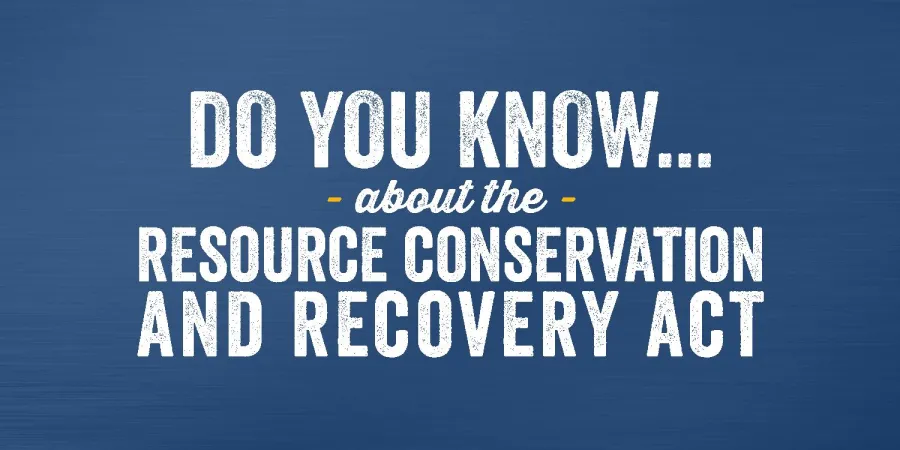The Resource Conservation and Recovery Act

If you are exposed to hazardous waste on the job, you may be entitled to protection under the EPA's Resource Conversation and Recovery Act.
What is RCRA?
The Resource Conservation and Recovery Act (RCRA) provides cradle to grave protection to workers, the community and the environment. It regulates the generation, transportation, treatment, storage and disposal of hazardous waste. This law is enforced by the Environmental Protection Agency (EPA).
Who needs RCRA training?
All workers who handle hazardous waste must be trained to safely recognize and manage hazardous wastes. This also helps workers identify situations that could cause releases and react quickly to prevent or stop spills. RCRA training is required for any workers at small or large quantity generators that perform hazardous waste-related tasks. Examples of these tasks include:
- Identifying and characterizing waste
- Loading, transporting and shipping waste
- Treating waste
- Maintaining records of waste operations
- Reporting and responding to releases
- Performing inspections
Workers who perform hazardous waste operations must complete a RCRA training within six months of being hired. After initial training is complete, an annual RCRA refresher training is required to ensure that workers are knowledgeable and up-to-date on hazardous waste operations. The amount and depth of RCRA training required may vary depending on job title.
RCRA rules and regulations may also vary by state. Some states have their own RCRA programs in addition to EPA. State laws can adopt stricter requirements than EPA. They must, however, be as stringent as the federal requirements.
Talk with your employer to determine if you need RCRA training to safely perform your job tasks. Contact your union representative, the United Steelworkers (USW) Health, Safety and Environment Department, or the USW Tony Mazzocchi Center for more information.